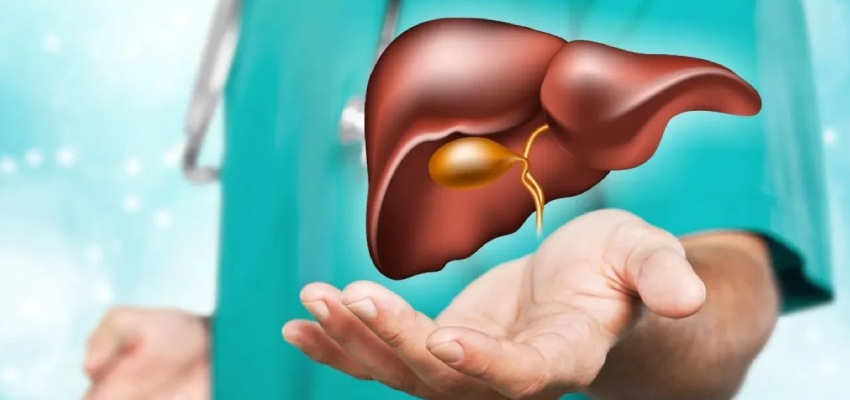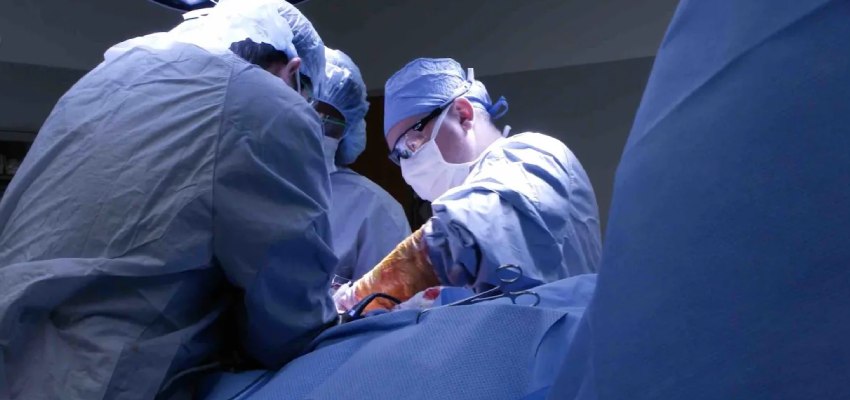Revitalize Your Summer Menu: 5 Creative Ways to Incorporate Coconut Water
18 May 2024The absolute best way to deal with the rising temperature under the…
read moreIn a complicated surgical intervention known as a liver transplant, a better and healthier liver from a donor is substituted for a diseased or injured liver.
When no other medical or surgical treatments are sufficiently able to restore liver health, it is regarded as the last resort treatment option for people with end-stage liver disease and otherwise acute liver failure.
A major surgical procedure like a liver transplant has risks like organ rejection, disease, bleeding, and issues with immunosuppressive medication. For those who qualify, it does provide a longer and better quality of life.
A multidisciplinary team of specialists works on the liver transplant as a life-saving procedure with the goal of giving patients with irreparable liver damage a healthier, more productive future.
Explore more about – Mole Removal Surgery

The term “liver disease” refers to a broad range of conditions that can impair the liver’s normal operation.
One of the main reasons for liver transplants is chronic liver disease, which includes cirrhosis, alcoholic liver disease, non-alcoholic fatty liver disease (NAFLD), and chronic hepatitis B or C.
These conditions cause the liver to gradually deteriorate, scar, and fibrose, which makes the liver less effective at carrying out its essential functions.
Contrarily, acute liver failure is a severe but uncommon condition characterised by a short-term, rapid decline in liver function.
It can be brought on by drug toxicity (such as an overdose of acetaminophen), autoimmune disorders, metabolic diseases, as well as viral infections (such as hepatitis A, B, or E).
Without prompt treatment, acute liver failure can result in complications that are fatal and may require an urgent liver transplant.
A patient’s condition, the severity of their liver disease, and their eligibility for a liver transplant are all assessed by a healthcare staff.
Candidates are put on a waiting list for a liver from a deceased donor or, if a living donor is available, they can investigate that option.
The goal of liver transplant surgery is to replace a diseased liver with a healthy donor liver, which will then regenerate and enlarge to its regular size for both the recipient and the donor.
Following organ transplantation, patients must take lifelong immunosuppressive drugs to prevent organ rejection; this necessitates close monitoring, medical management, and changes in lifestyle for success as well as reducing difficulties.
Patients with acute liver failure and end-stage liver disease now have a much higher chance of survival and a higher quality of life thanks to liver transplants.
Advancements in medical technology and expertise have made liver transplant safe and successful. However, limited donor organ availability necessitates organ donation and awareness about liver disease and transplantation to save more lives.
Have a look at Chemotherapy.

Liver transplant is primarily performed for the following conditions:
Chronic infections, alcohol problem and non-alcoholic liver diseases, liver disease, and autoimmune disorders are among the most typical causes.
Acute liver failure can be fatal if it is not treated quickly.
End-stage liver disease or acute liver failure can be treated with a liver transplant, which involves swapping out the damaged liver for a healthy one from a living or deceased donor.
A talented surgical team is required for this complicated procedure.
Also read about – Knee Replacement Surgery
This evaluation includes blood tests, imaging studies, and a review of their medical history.
While deceased donor transplants use the entire donor liver, living donor transplants only use a portion of the donor’s liver.
To ensure proper blood flow and liver function, the surgical team joins blood vessels and bile ducts.
To stop the recipient’s immune system from rejecting the new liver, immunosuppressive medications are given
Long-Term Follow-Up: Post-transplant care is essential for the success of the procedure and calls for routine follow-up visits to check on the patient’s liver and to review and adjust any medication.
You can also look at Plastic Surgery.
Risks associated with liver transplant surgery include organ rejection, infections, haemorrhaging, and bile duct issues.
Medication that suppresses the immune system makes a person more vulnerable to infections and metabolic problems.
Thanks to advancements in surgical methods and immunosuppressive medications, liver transplant success rates have significantly increased over time.
Liver transplant patients typically have high one-year survival rates, and many go on to lead regular, healthy lives.
Do read about Bone Marrow Transplant for your reference.

Many patients from all over the world choose to have liver transplants in India because of the country’s relatively lower treatment costs when compared to other nations. India is known for offering affordable medical treatments.
When choosing a course of treatment, it is crucial to consider the standard of medical care, the surgical team’s experience, and the hospital’s success rates, as the success of a liver transplant greatly depends on the knowledge and skills of the medical team.
The cost of treating liver transplant disease in India varies depending on several variables, including the hospital, the type of transplant (from a living or deceased donor), the patient’s health, and the length of time post-operative care is needed.
In India, the average cost of a liver transplant can be between 20 lakh and 35 lakh INR.
It is important to understand that this cost is only an estimate and may change.
Pre-transplant evaluation, donor workup (in living donor transplants), immunosuppressive medications, post-operative care, as well as follow-up consultations may all incur additional costs.
The transplant centre and medical staff should be consulted regarding these costs to obtain a more precise estimate of the overall cost.
Read about – Root Canal Treatment
A liver transplant is a surgical procedure replacing a damaged or diseased liver with a healthy one, if no other treatments can restore health.
Liver transplant is performed for end-stage liver diseases, chronic infections, and acute liver failure due to drug toxicity, metabolic diseases, or viral infections.
Liver transplant involves pre-evaluation, donor selection, surgery, post-transplant care, and long-term follow-up for proper function.
Liver transplant surgery risks include organ rejection, infections, bleeding, and bile duct issues, with immunosuppressive medications increasing susceptibility.
Improved surgical methods and immunosuppressive medications boost liver transplant success rates, ensuring long-term health.
India's liver transplant cost varies from 20 lakh to 35 lakh INR, considering factors like hospital, transplant type, patient condition, post-operative care, and additional expenses.
India offers cost-effective liver transplants, attracting patients worldwide. However, it's crucial to consider quality care, surgical team expertise, and hospital success rates when making treatment decisions.
A diverse team of healthcare specialists conducts a thorough examination of liver transplant patients. The severity of the liver disease, the patient's general health, the existence of other medical diseases, and the patient's capacity to cooperate with post-transplant care and medications are all factors evaluated when establishing a patient's eligibility for a liver transplant.
Psychosocial aspects such as support system, mental health, and history of substance misuse are also considered. The assessment procedure is designed to guarantee that liver transplant candidates have the highest possible chance of success and that the limited quantity of donor organs is used wisely.
Yes, in some circumstances, living donor liver transplantation is an option. A healthy person donates a piece of their liver, which regenerates in both the donor and the receiver.
Shorter waiting times, greater organ quality, and the flexibility to arrange the treatment at a suitable time are all advantages of living donor transplantation. However, there are dangers and drawbacks, including potential physical hazards to the donor and the requirement for a suitable living donor.
The choice to seek live donor transplantation is influenced by the donor's and recipient's individual circumstances, as well as medical evaluations of both the donor and the recipient.
Liver is one of the most important organs of the human body and the working and functioning should be kept in check. One can take care of their liver by following things like-not consuming alcohol, doing regular workout, having good diet, including more fluids in diet, drinking plenty of water, avoiding smoking, for going to medical health checkups at regular intervals. All these things can help you in keeping your liver fit.
With over 5000 doctors and experts in the healthcare field medical directory provides a listing of all doctors across a wide variety if medical fields
The absolute best way to deal with the rising temperature under the…
read moreआपके आसपास बहुत से पेड़ पाए जाते हैं इन्हीं में से एक…
read moreAyurveda, the old Indian wisdom handed over from ancestors, contains an amazing…
read moreक्या आप भी उन लोगों में से हैं जिन्हें सफर के दौरान…
read more
© Copyright 2024 PlanMyMedical. All rights reserved.
Comments (2)